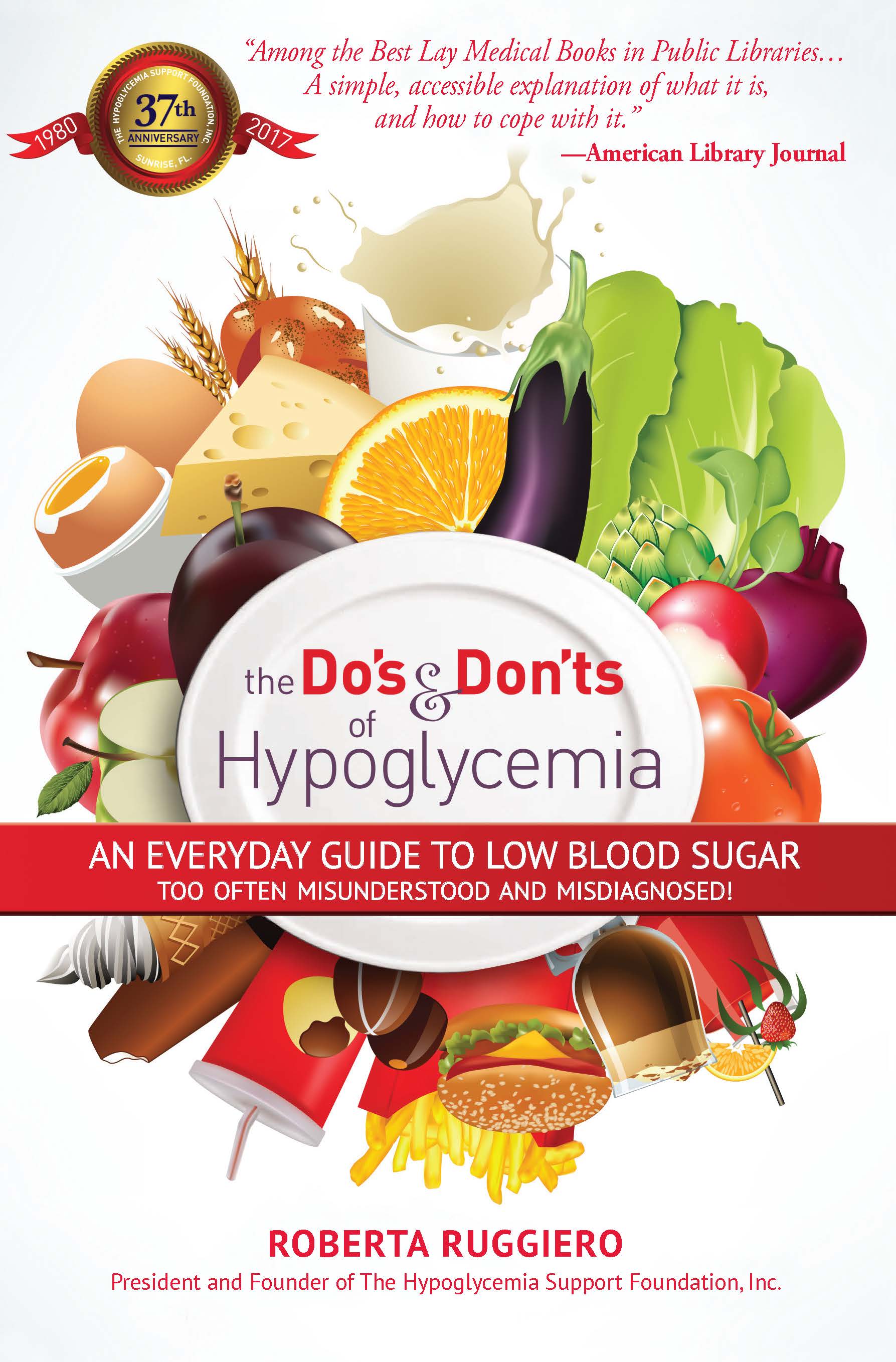Hypoglycemia – What is it?
I’ve read and reread the definition of hypoglycemia at least a hundred times. I’ve been asked repeatedly, “What is hypoglycemia?” And, in turn, I have asked the leading authorities in the fields of preventive and nutritional medicine. Their answers, although similar, are varied. Some are more technical than others. One thing is for certain—the definition of hypoglycemia can be as diversified and complex as the condition itself, or as simple and easy as some of the steps to control it. In simple layman’s language, hypoglycemia is the body’s inability to properly handle the large amounts of sugar that the average American consumes today. It’s an overload of sugar, alcohol, caffeine, tobacco and stress.
In medical terms, hypoglycemia is defined in relation to its cause. Functional hypoglycemia, the kind we are addressing here, is the over secretion of insulin by the pancreas in response to a rapid rise in blood sugar or “glucose.”
All carbohydrates (vegetables, fruits and grains, as well as simple table sugar) are broken down into simple sugars by the process of digestion. This sugar enters the bloodstream as glucose, and our level of blood sugar rises. The pancreas then secretes a hormone known as insulin into the blood in order to bring the glucose down to normal levels. In hypoglycemia, the pancreas sends out too much insulin and the blood sugar plummets below the level necessary to maintain wellbeing.
Since all the cells of the body, especially the brain cells, use glucose for fuel, a blood glucose level that is too low starves the cells of needed fuel, causing both physical and emotional symptoms. Some of the symptoms of hypoglycemia are:
Fatigue, insomnia, mental confusion, nervousness, mood swings, faintness, headaches, depression, phobias, heart palpitations, craving for sweets, cold hands and feet, forgetfulness, dizziness, blurred vision, inner trembling, outbursts of temper, sudden hunger, allergies and crying spells.
After reading a list like this, one can see why hypoglycemia could be misunderstood and easily misdiagnosed. Don’t be alarmed if you read other books that I recommend and see that the list is, in fact, even longer. Don’t be confused and frightened when you read other definitions that range from a paragraph to several pages in length. For the beginner, it is important that you first recognize that most often hypoglycemia is the result of a diet high in sugar, alcohol, caffeine and tobacco.
Before going any further, look at your dietary habits and/or any addictive traits. Start adding up the sodas, coffee, cakes and cigarettes you consume in one day. Keep track of how many meals you miss. Are you under a tremendous amount of stress with your spouse, children, boss, etc.? All of these circumstances can give birth to a case of low blood sugar that can plague you for the rest of your life. Don’t take your body for granted. Neglect it, and you’ll pay a high price. Take care of it, and low blood sugar becomes an inconvenience that you can manage by yourself.
Excerpted from The Do’s and Don’ts of Hypoglycemia: An Everyday Guide to Low Blood Sugar, by Roberta Ruggiero
Hypoglycemia: What to do if you have it.
As a young mother, I had no idea of sugar’s consequences when living on sugary cakes, hot fudge sundaes and apple pie. I would swing from not eating meals to eating those that consisted of pasta and bread. No wonder I had chronic fatigue, suffered with insomnia, severe depression and headaches that felt like my head was going to explode.
This lasted 10 years during which time I visited dozens of doctors, endured countless tests, took thousands of pills and was even subjected to the administration of electric shock therapy. But I was still sick. Finally, I found a physician who explained I had a severe case of functional hypoglycemia (low blood sugar) and all I needed was a DIET! Yes, a simple glucose tolerance test and a proper diagnosis finally led me on the road to recovery.
But it was not easy! What I hoped would be an “overnight” remedy turned out to take several years of sorting through a mass of confusing and complicated information. Due to unfamiliarity with the stages of recuperation, controversy surrounding its treatment and non-acceptance from many in the medical community, I found myself feeling like I was the only person in the world suffering from this baffling disease.
Eventually, success did come, but alleviating my symptoms was a long, slow process. It would have been quicker if only I had understood the importance of individualizing my diet, the necessity for vitamins and exercise, and the role a positive attitude plays in the healing process. Above all, the road back to health would not have been so rocky if other hypoglycemics had been there to lend support and encouragement. Faith, patience, determination and the boundless love of my family were the cornerstones to my recovery.
You, my dear readers, have what was not available to me some 40 years ago. The internet allows you to access information about hypoglycemia almost in an instant. Type in any topic of interest at Yahoo or Google and you’ll see not one but dozens of responses. My concern though is that by going this route, you’re shortchanging yourself and won’t be receiving a complete course of treatment for controlling hypoglycemia. Instead you will get bits and pieces of information that could lead to more confusion and fear.
So, after years of speaking with thousands of hypoglycemics and personally going through the highs and lows, challenges and successes of this condition… here is what I believe. Hypoglycemia is one of the most confusing, complicated, misunderstood and misdiagnosed conditions today.
Therefore, my message is simple:
Your Symptoms May Not Be “All In Your Head”
If you suffer from fatigue, insomnia, mental confusion, nervousness, mood swings, faintness, headaches, depression, phobias, blurred vision, inner trembling, outbursts of temper, sudden hunger, heart palpitations, cravings for sweets, allergies and crying spells (just to name a few), you may have functional hypoglycemia and it is most likely the result of poor diet, stress and lifestyle.
If you suspect hypoglycemia, first EDUCATE yourself on this condition. Read every book you can get your hands on that discusses the subject. One may contradict another; others will be confusing and difficult to understand. Nevertheless, you will learn something from each of them. Remember, too, you don’t have to read the thick books all at once. You can read them a chapter, a page or a few paragraphs at a time. Learning takes time, energy, patience, and commitment. Don’t give up. Just do it gradually and consistently. Don’t say you don’t have the time or ability–you do! I cannot stress enough that knowledge and understanding of the causes, effects and treatment of this condition are imperative.
Then start keeping a diet/symptom diary–a daily account of everything you eat for one week to ten days. In one column, list every bit of food, drink and medication you take and at what time. In the second column, list your symptoms and the time at which you experience them. Very often you will see a correlation between what you have consumed and your symptoms.
Now make a list of your symptoms and bring it to a healthcare professional along with your diet/symptom diary and the questions and concerns generated from all your reading on hypoglycemia. There is no substitute for a medical diagnosis and treatment plan!
Can’t find a physician? Want to know if you need the glucose tolerance test? Questioning what you should eat? Wondering if you will become diabetic? Worried that your two-year-old might have hypoglycemia? Your questions may seem endless, and it is impossible to answer all of them individually. But the good news is that many of your concerns may be addressed on the website of the Hypoglycemia Support Foundation (HSF): www.hypoglycemia.org. Visit it today! You will find pages of up-to-date information on hypoglycemia and personal stories that will inspire and uplift you. And don’t miss out on years of HSF blogs…a wealth of information you can’t afford to miss!
Finally, check out the HSF’s Facebook page at https://www.facebook.com/HypoglycemiaSupport. Here you will discover up close and personal news and views on every aspect of hypoglycemia. The best part is that you will meet a “family” of other sufferers brave enough to share their personal stories. Perhaps you will see yourself in some of their experiences. More importantly, perhaps you will find a suggestion or two that work for you.
All of this is easily accessible, but YOU must take the first step. Education, preparation and commitment are key to recovery.
Believe me, the rewards will be worth it!
Here’s to your health,
Roberta
Click on the book cover to purchase the book at Amazon.Com.


